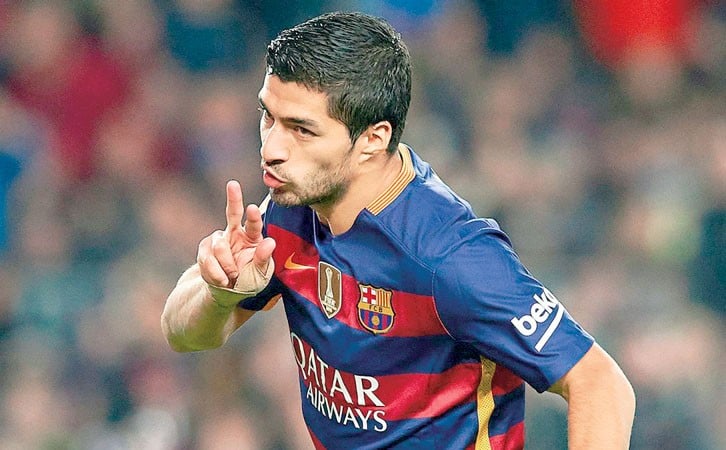
a lot of us envy the lifestyle of sporting superstars who rule millions of hearts. Icons who have created an identity for themselves

Let’s be honest: a lot of us envy the lifestyle of sporting superstars who rule millions of hearts. Icons who have created an identity for themselves. Their glamorous lifestyle is a dream to chase for many young sportsmen. Here we take a look at the lifestyles of three football superstars but the way Doc Brown would want, by throwing ourselves back to the time before these megastars were just a little more than nobody. So let’s hop on that time machine:
He was born in late 1980s to Maria Dolores dos Santos Aveiro and Jose Dinis Aveiro. He was their youngest child. The life in the neighbourhood of Funchal, Madeira, was far from a bed of roses for the son of a gardener, ironically.
Poverty, exacerbated by the father’s drinking habit, would’ve been enough to make him despondent -- if he wasn’t a boy with a dream. His mother used to work as a cook & cleaning person in the area. He shared his room with siblings in a small tin-roofed house.
It was when his father started working as a kit-man at an amateur team Andorinha that he began to show signs of what he was to become years later.
At 14, he quit his education to focus on football but not before he had been expelled from the school over disciplinary issues. He was aggressive, hungry to make a name for himself with his natural talent. He had a heart condition and underwent a surgery for that, which almost forced him to leave the sport. This was Crisitiano Ronaldo.
We are in the city of Malmo, but still in the ‘80s. We have had a very rough ride with our time machine but things may just get even rougher now.
Born to a Croatian mother and a Bosnian father, he was one of those children born with tough luck but an even tougher will. His parents divorced when he was just 2. He spent his early childhood with his mother, who used to work as a cleaner.
He often remained hungry as he wasn’t really welcomed in either of his poor parents’ houses. School wasn’t really a place for him as his rowdy behaviour had earned him a bad reputation. He used to steal things which he couldn’t afford.
He was living in a gloomy world parallel to the bright mainstream Sweden. Idolising Brazil’s maestro Ronaldo, he taught himself football on an old pitch in his neighbourhood. The conditions did not break him, however; they made him develop skills that were to make him one of the greatest strikers of modern era. He persisted -- with his skills, agility and talent. He was soon noticed and joined the city’s professional club when he was 17. There was no looking back after that. This was Zlatan Ibrahimovic.
We are now in the city of Salto. Sometimes life keeps pulling someone, only to slingshot him once the time is right. The same was the case with this boy.
Playing football bare-footed on the cobbled streets of his neighbourhood are his early childhood memories. His was a lower-class family with often no money to buy even the basic necessities of life. When he was 7, they moved to Montevideo in search of a job for his father, a porter. The new place and hardships frustrated him even more and may well have shaped the aggressive hothead that we see today on the field. He even had to work as a sweeper to support his family there. His parents separated when he was 9, hurting him in his formative years even further.
The same year, he was first noticed by a scout working for Nacional after scoring a hat-trick. But the rebellious young boy lost focus and kept neglecting his football until he was 15. He finally found motivation and support -- from a girl named Sofia Balbi, now his wife. He then began to find his path, starring for Nacional and the rest is just history. He remains a rebel as he still attracts controversies every now and then. The boy is now one of the most decorated strikers in the football world. He is Luis Suarez.